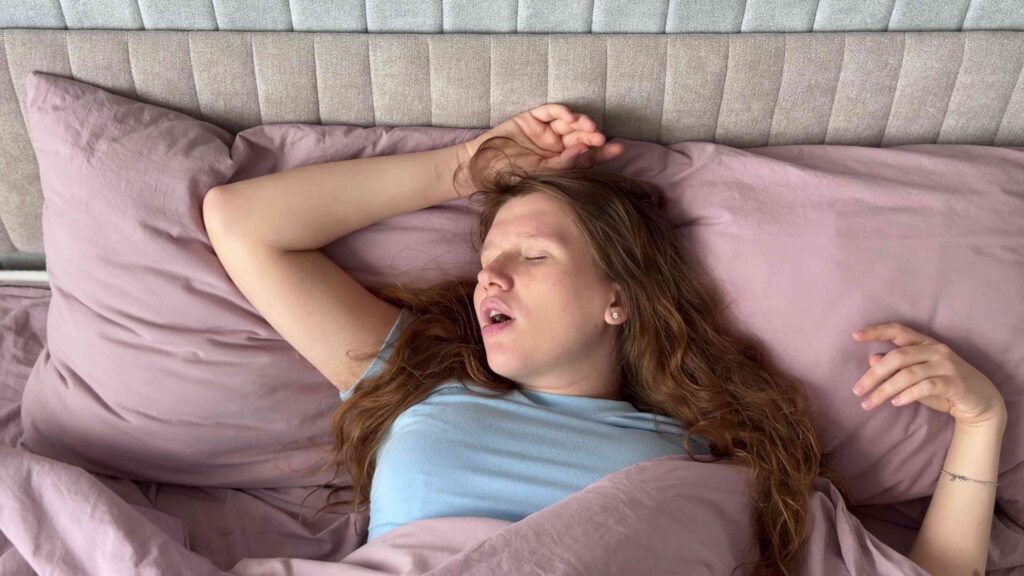
If you have sleep apnea, you know how challenging it is to get the quality sleep you need at night to thrive during the day. Some of the most common symptoms experienced are chronic fatigue, waking during the night, morning headaches, and difficulty focusing. Something that you may not know is that sleep apnea can negatively affect the temporomandibular joints (TMJs). Read on to learn more about their connection.
What Is TMJ Disorder?
TMJ disorder is a condition in which one has compromised movement and/or pain surrounding the jaw joint and surrounding muscles. This can lead to a wide range of related consequences, like frequent headaches, difficulty chewing, ear pain, and popping of the jaw. This condition can be caused by numerous factors, like jaw injury, arthritis, and genetic factors.
What Is the Connection Between TMJ & Sleep Apnea?
It has been shown by multiple studies that there is a significant association between TMJ disorder and obstructive sleep apnea (OSA). However, the link isn’t entirely clear. What is known is that those who are at high risk of sleep apnea also have a higher chance of developing issues related to the TMJs.
How Can Sleep Apnea & TMJ Treatment Be Addressed?
The most common way to treat OSA is with CPAP therapy. This machine works by continuously delivering air through your mouth and/or nose to keep your airway open via a face mask. However, for many patients, CPAP therapy is uncomfortable and difficult to comply with. As an alternative, lots of people with sleep apnea prefer the use of oral appliances. These appliances are worn throughout the night to keep the lower jaw in optimal position during sleep. In addition to preventing the collapse of the airway, many oral appliances can provide benefits for TMJ disorder.
What Are the Benefits of Oral Appliance Therapy?
Using oral appliances for sleep apnea and TMJ disorder can offer many benefits. Here are some of the most notable ones.
- Non-Invasive: Oral appliance treatment is a non-invasive, conservative approach for both conditions.
- Comfort: Oral appliances are customized to fit your mouth perfectly.
- Improved Sleep: Oral appliances can significantly improve quality of sleep.
- Dual Purpose: These devices can address both TMJ disorder and OSA simultaneously.
Sleep apnea and TMJ disorder can both result in uncomfortable consequences, so it is important to have them addressed. This way, you can receive the quality sleep you deserve!
About the Author
Dr. Steve Cha earned his dental doctorate from the Loma Linda University School of Dentistry. He has certifications from the American Orthodontic Society and the Advanced Dental Implant Research & Education Center. Currently, he is a proud member of the American Dental Association and the Texas Dental Association. To learn more about oral appliances or to schedule an appointment at his McKinney office, visit his website or call (972) 529-1800.
